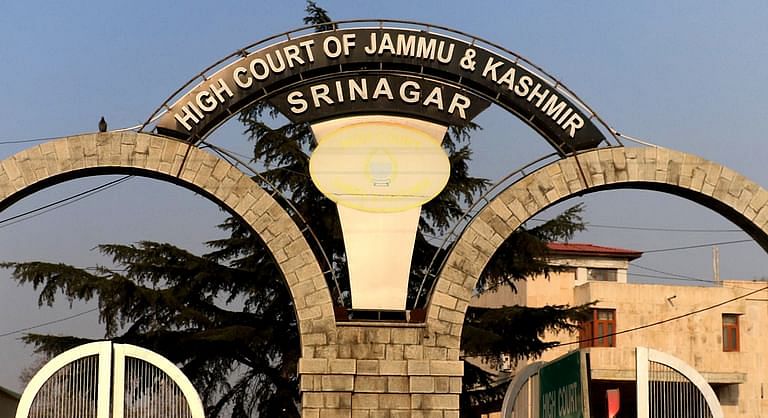Srinagar: High Court of J&K and Ladakh has held that authorities in government cannot withdraw a reservation certificate without hearing the concerned person.
“It is crystal clear that once a certificate of reserved category is issued by the Competent Authority in favour of a person, same can only be withdrawn by the Appellate Authority in the exercise of powers conferred upon it under Section 18 of the (Scheduled Tribe Category) Act of 2004, and such power can be exercised only after giving reasonable opportunity of being heard to the person concerned,” bench of Justice Sanjeev Kumar said.
The Court ruled this while allowing a batch of petitions including the one by Irfan Ahmad Khan Gujjar, who was selected as Sub Inspector (Executive) in Jammu and Kashmir Police in 2016 under the reserved category of Scheduled Tribe (ST) . He was not appointed as the authenticity report of his Category Certificate was pending from the competent Authority.
Similarly some of his brothers who were before the court in other petitions were shortlisted for General Line Teachers were selected but appointment orders were not issued in their favour.
In its objections the government stated that an enquiry was conducted by the Additional District Magistrate (ADM), Bijbehara (Anantnag )and subsequently the Deputy Commissioner, Anantnag in May 2019, cancelled the ST Category Certificate issued in favour of Irfan Ahmad Khan Gujjar and others.
It is because of this reason, formal order of appointment in favour of these persons were not issued by the appointing authority. In response to the stand taken by the authorities, the court said once a reserved category certificate is issued by the competent authority in favour of a person, the same can only be withdrawn by the appellate authority in the exercise of powers conferred upon it under Section 18 of the Act of 2004. “ Such power can be exercised only after giving reasonable opportunity of being heard to the person concerned,” it said.
The Court said the order passed by the Deputy Commissioner, thus, falls within the purview of Section 18 of the Act of 2004 and, therefore, would be null and void being passed in violation of the Proviso appended to Section 18.
“That apart, it is trite law that a person cannot be deprived of his vested right without first complying with the principles of natural justice… The Legislature in its wisdom has made this principle a part of Section 18 and, therefore, is required to be mandatorily complied with,” Court said.
Quashing the order passed by the Deputy Commissioner, Anantnag, cancelling the ST Category Certificate issued in favour of Irfan and others, the Court held them entitled to all the benefits emanating from the certificate.
“It shall, however, remain open to the Appellate Authority under the Act of 2004 and the Rules framed thereunder to act under Section 18 of the Act either suo moto or on an application moved by any aggrieved person including a genuine member of the Gujjar Community provided there is prima facie material before the Appellate Authority to doubt the genuineness and admissibility of the Schedule Tribe Category Certificate issued by the Competent Authority in favour of the petitioners”. Court said.
The Appellate Authority, the Court said, shall keep in view the law laid down by the Supreme Court in the Constitution Bench Judgment rendered in the case of Millind and others wherein it has been held that it was not within the province of Court, Authority, Tribunal or the Government to deal with the question as to whether a particular tribe or sub-tribe or a group or part of tribe is included in one of the entries mentioned in the Presidential Order issued under Article 342 of the Constitution of India.
“It is equally important to bear in mind that while holding an enquiry to find out the status of a person claiming to be a member of Scheduled Tribe Community, the Competent Authority shall not travel beyond the scope of Clause (iv) of Rule 21 of the Reservation Rules of 2005,” the court said.
The Court pointed out that once the Competent Authority finds a person belonging to a particular Scheduled Tribe Community, the carrying of a different surname by such person would be immaterial. “The enquiry must be directed to find as to whether the person claiming the benefit of reservation as a member of Scheduled Tribe Community actually belongs to such community or not,” Court said.






